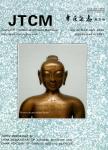Effect of Taijiquan practice versus wellness education on knee pro-prioception in patients with knee osteoarthritis:a randomized con-trolled trial
Effect of Taijiquan practice versus wellness education on knee proprioception in patients with knee osteoarthritis: a randomized controlled trial作者机构:Department of Physical Therapy with Chinese MassageYueyang Hospital of Integrated TraditionalChinese and Western MedicineShanghai University of Traditional Chinese MedicineShanghai 200437ChinaKey Laboratory of Exercise and Health SciencesMinistry of Educa-tionShanghai University of SportShanghai 200438China Key Laboratory of Exercise and Health SciencesMinistry of EducationShanghai University of SportShanghai 200438China Key Laboratory of Exercise and Health SciencesMinistry of EducationShanghai University of SportShanghai 200438ChinaSchool of Human KineticsFaculty of Health SciencesUniversity of OttawaOttawa KIN 6N5Canada
出 版 物:《Journal of Traditional Chinese Medicine》 (中医杂志(英文版))
年 卷 期:2017年第37卷第6期
页 面:774-781页
核心收录:
学科分类:1007[医学-药学(可授医学、理学学位)] 1005[医学-中医学] 100508[医学-中医骨伤科学] 1002[医学-临床医学] 10[医学]
基 金:Supported by the Shanghai City Committee of Science and Technology Key Project,Evaluation of Nerve and Muscle Function after Taijiquan Practice for Patients with Knee Osteoarthritis(No.12490503200) Innovation Program of Shanghai Municipal Education Commission,Effect of exercise on the sub-health of physical inactivity adults(No.13ZS020) Shanghai University of Traditional Chinese Medicine,Evaluation of Taijiquan and Tuina Therapy on Knee Osteoarthritis(No.2014YSN48)
主 题:Tai ji Osteoarthritis, knee Rheumaticdiseases Pain Proprioception Randomized con-trolled trial
摘 要:OBJECTIVE: To determine the effects of Taijiquan practice on knee proprioception in patients with knee osteoarthritis(OA).METHODS: We conducted a randomized controlled trial comparing Taijiquan with a control condition(wellness education) in patients with knee OA. The patients participated in either a 60-min Taijiquan session three times weekly or a 60-min weekly educational session, for 24 consecutive weeks. The primary outcomes were changes in knee proprioception. Secondary outcomes were changes in the Western Ontario and Mc Master University Osteoarthritis Index(WOMAC).RESULTS: After 24 weeks, compared with the control group, the Taijiquan group demonstrated better improvements in the joint position sense in knee flexion(left:-2.12°; right:-2.02°), and knee extension(left:-2.22°; right:-1.54°). In addition,the Taijiquan group showed significantly greater improvements in the WOMAC scores(P 0.05) for knee pain(left:-3.17 points; right:-3.74 points),stiffness(left:-2.43 points; right:-2.13 points),and physical function(left:-10.99 points; right:-8.00 points), compared with the control group.CONCLUSION: A 24-week Taijiquan practice resulted in a significant improvement in knee proprioception in patients with knee OA. The present findings add increasing evidence regarding the clinical benefits of Taijiquan as a therapeutic modality for patients to improve the reflex protection of knee joints against potentially harmful forces.



